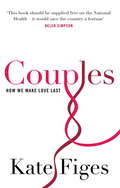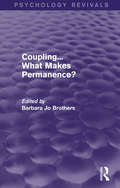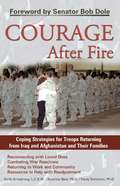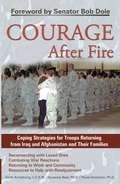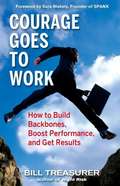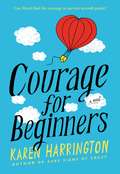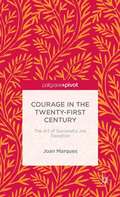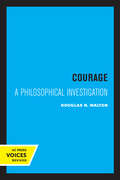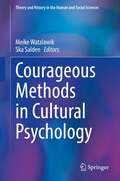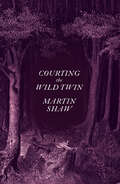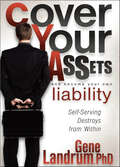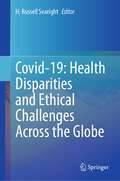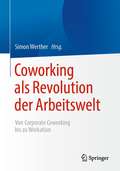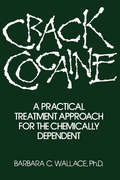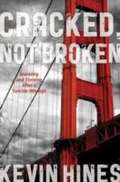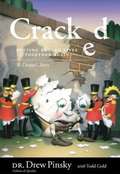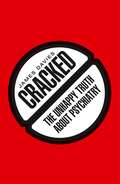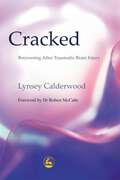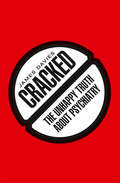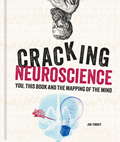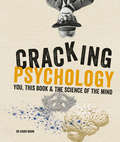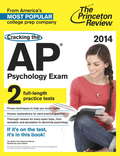- Table View
- List View
Couples: How We Make Love Last
by Kate FigesThese days, many of us enjoy unrivalled freedom and equality when it comes to choosing and building a relationship. Yet new myths about how to live and love compromise that happiness.Kate Figes argues that, whether married or cohabiting, gay or straight, remarried or a couple living apart, the quality of our intimate relationship is fundamental to our long-term health and happiness, because our need for commitment and love hasn't changed.This is not a handbook. There are no easy 'Mars and Venus' universal recipes for success, because relationships are far too complicated, individual and important for easy answers. But learning how others sustain lifelong love, and what really goes on in other people's lives can help us to understand our own partnerships and take responsibility for making them work. Couples is an incisive and important look at how we can learn to make love endure.
Coupling... What Makes Permanence? (Psychology Revivals)
by Barbara Jo BrothersOriginally published in 1991, the theme for this title is the exploration of the components of lasting, long-term relationships. It begins with the first part of an interview between Sheldon Starr and Virginia Satir, made in 1985 and is followed by a comment on that interview by the Editor. Other chapters discuss the subject of falling in love and the notion of ‘being in love’ as distinguished from ‘a love relationship’. The authors, including some who have been married for many years themselves, look at the many aspects that make long-term relationships successful. The chapters range in essence from ‘What is love?’ to ‘How is love maintained?’. This title aims to share the information the authors have gained, about what makes coupling work, with society as a whole.
Courage After Fire: Coping Strategies for Troops Returning from Iraq and Afghanistan and Their Families
by Suzanne Best Paula Domenici Keith Armstrong<p>The bravery displayed by our soldiers at war is commonly recognized. However, often forgotten is the courage required by veterans when they return home and suddenly face reintegration into their families, workplaces, and communities. Authored by three mental health professionals with many years of experience counseling veterans, <i>Courage After Fire</i> provides strategies and techniques for this challenging journey home. <i>Courage After Fire<i> offers soldiers and their families a comprehensive guide to dealing with the all-too-common repercussions of combat duty, including posttraumatic stress symptoms, anxiety, depression, and substance abuse. It details state-of-the-art treatments for these difficulties and outlines specific ways to improve couple and family relationships. It also offers tips on areas such as rejoining the workforce and reconnecting with children.</p>
Courage After Fire: Coping Strategies for Troops Returning from Iraq and Afghanistan and Their Families
by Suzanne Best Paula Domenici Keith ArmstrongThe bravery displayed by our soldiers at war is commonly recognized. However, often forgotten is the courage required by veterans when they return home and suddenly face reintegration into their families, workplaces, and communities. Authored by three mental health professionals with many years of experience counseling veterans, Courage After Fire provides strategies and techniques for this challenging journey home.Courage After Fire offers soldiers and their families a comprehensive guide to dealing with the all-too-common repercussions of combat duty, including posttraumatic stress symptoms, anxiety, depression, and substance abuse. It details state-of-the-art treatments for these difficulties and outlines specific ways to improve couple and family relationships. It also offers tips on areas such as rejoining the workforce and reconnecting with children. &“A crucial tool for the men and women who have been serving our country so VALIANTLY during these past years.&” —Senator Bob Dole, from the foreword &“This extraordinary work will help the men and women returning from Iraq and Afghanistan find the COURAGE to rebuild their lives and be successful.&” —Honorable Anthony J. Principi, Former Secretary of Veterans Affairs
Courage Goes to Work: How to Build Backbones, Boost Performance, and Get Results
by Bill TreasurerTreasurer is the founder of a consulting firm that helps companies and individuals become more courageous in the marketplace, and this book is designed to help managers to avoid fear and operate out of business "comfort zones" that inhibit progress as well as profits. The author maintains that complacency is the same as fear in a corporate environment, and he offers a plan for making "giant leaps" by first harnessing fear, modulating comfort and setting up safety nets. This book also offers clear strategies for encouraging the same attitudes among employees in order to create a more unified and focused workforce. Annotation ©2009 Book News, Inc., Portland, OR (booknews.com)
Courage for Beginners
by Karen Harrington<P>Twelve-year-old Mysti Murphy wishes she were a character in a book. <P>If her life were fictional, she'd magically know how to deal with the fact that her best friend, Anibal Gomez, has abandoned her in favor of being a "hipster." <P> She'd be able to take care of everyone when her dad has to spend time in the hospital. And she'd certainly be able to change her family's secret. <P>Seventh grade is not turning out the way Mysti had planned. <P>With the help of a hot-air balloon, her new friend Rama Khan, and a bright orange coat, can she find the courage to change?
Courage in the Twenty-First Century: The Art of Successful Job Transition
by Joan MarquesCourage outlines the art of moving forward both in professional and personal life. Marques offers a strategy for self-renewal in order to divulge the virtues and viewpoints to successfully move from one career to another.
Courage: A Philosophical Investigation
by Douglas N. WaltonThis title is part of UC Press's Voices Revived program, which commemorates University of California Press’s mission to seek out and cultivate the brightest minds and give them voice, reach, and impact. Drawing on a backlist dating to 1893, Voices Revived makes high-quality, peer-reviewed scholarship accessible once again using print-on-demand technology. This title was originally published in 1986.
Courageous Methods in Cultural Psychology (Theory and History in the Human and Social Sciences)
by Meike Watzlawik Ska SaldenInnovative research requires courageous methods. With this in mind, Courageous Methods in Cultural Psychology invites students and post-graduate researchers to develop methods that will let them grasp phenomena of interest more fully. Readers will learn how to use established methods, and may be asked to develop them further by combining single steps of extant procedures, or by taking a completely new approach to data collection and analysis. In this book, diverse researchers present projects in which they have tried to do just that. A comprehensive process — from narrowing down research questions to collecting and analyzing data — is given in detail, followed by critical reflections on how well the authors have understood and shared complex realities. Project presentations are framed by theoretical chapters that deal with the challenges and opportunities of cultural psychology and interdisciplinary research. Courageous Methods in Cultural Psychology is sure to inspire and encourage those who wish to venture on new roads “into the wild.”
Courting the Wild Twin
by Martin ShawMaster mythologist Martin Shaw uses timeless story-wisdom to examine our broken relationship with the world There is an old legend that says we each have a wild, curious twin that was thrown out the window the night we were born, taking much of our vitality with them. If there was something we were meant to do with our few, brief years on Earth, we can be sure that the wild twin is holding the key. In Courting the Wild Twin, Dr. Martin Shaw invites us to seek out our wild twin––a metaphor for the part of ourselves that we generally shun or ignore to conform to societal norms––to invite them back into our consciousness, for they have something important to tell us. He challenges us to examine our broken relationship with the world, to think boldly, wildly, and in new ways about ourselves—as individuals and as a collective. Through the use of scholarship, storytelling, and personal reflection, Shaw unpacks two ancient European fairy tales that concern the mysterious wild twin. By reading these tales and becoming storytellers ourselves, he suggests we can restore our agency and confront modern challenges with purpose, courage, and creativity. Courting the Wild Twin is a declaration of literary activism and an antidote to the shallow thinking that typifies our age. Shaw asks us to recognize mythology as a secret weapon—a radical, beautiful, heart-shuddering agent of deep, lasting change.
Cover Your Assets and Become Your Own Liability: Self-Serving Destroys from Within
by Gene LandrumSacrifice Tomorrow for Today and You'll have Destroyed Tomorrow! While America was landing on the moon, Japan was landing in our living room. One nation focused on the conquest of space; the other on the conquest of mass consumer markets. Cover Your Assets delves into how an export power became an importer in three decades through self-serving. CYA management and discusses the need for leadership transformation to return to the days of glory. The cost of a nation's leadership adopting a take care of me now mentality is huge. When they sacrifice tomorrow for today, they have sold tomorrow. CYA includes a self-assessment on how to change personally and professionally. There is a need to zap the Yes Men in our heads and understand what makes us tick. Those who don't are hard-pressed to understand how to manage, motivate or control others. We all have a need to feel good today but too much of today leads to too little tomorrow.
Covid-19 Through the Lens of Mental Health in India: Present Status and Future Directions
by Tilottama MukherjeeThis book provides an in-depth understanding of the impact of COVID-19 on the psychological health of people and communities in India. Focusing on the current discourse on mental health literacy in India, the book also analyses COVID-19-specific health beliefs and their convergences and divergences with COVID-19 protocols and advisories. It discusses the impact of the pandemic on survivors of COVID-19 including their quality of life, psychological well-being, and coping mechanisms while tackling loneliness, loss, and grief. It explores the psychological and social challenges which children have faced during the pandemic and offers techniques to address and adequately manage mental health challenges. Grounded in theoretical and empirical research, this book will be of interest to students, teachers, and researchers of psychology, social psychology, mental health and wellness studies, and sociology. It will also be useful for academicians, social workers, healthcare workers, and psychologists.
Covid-19: Health Disparities and Ethical Challenges Across the Globe
by H. Russell SearightInternationally, marginalized populations, including indigenous people, refugees fleeing both war and the effects of climate change and people-of-color, have borne a disproportionate share of serious COVID 19 illnesses and deaths. Each contributor has a background in public health, applied psychology, and international issues, bringing a unique perspective and a valuable lens through which to view these issues. Additionally, the authors are members of the COVID-19 Ethics and Legal Issues Task Force within Division 52 (International Psychology) of the American Psychological Association. The task force has spent the last two years describing how COVID-19 has highlighted pre-existing health disparities within the U.S. and internationally. The topics investigated include strategies to manage the pandemic employed by governments in various countries as well as models of medical ethics guiding healthcare decision-making.
Coworking als Revolution der Arbeitswelt: von Corporate Coworking bis zu Workation
by Simon WertherDieses Buch „Coworking als Revolution der Arbeitswelt – von Corporate Coworking bis zu Workation” erklärt Ihnen das moderne Arbeits- und Lebenskonzept Coworking. Dabei reichen die Perspektiven von Corporate Coworking innerhalb von Firmen über Coworking Spaces im ländlichen Raum bis hin zu Workation als Kombination aus Coworking und Urlaub.Im Zentrum des Buchs stehen fundierte Perspektiven sowie umfassende Erfahrungsberichte von Expertinnen und Experten aus Hochschulen, Coworking Spaces und Verbänden. Sie erfahren somit nicht nur was Coworking wirklich auszeichnet, sondern auch welche Vorteile und Besonderheiten, aber auch welche Stolpersteine, damit einhergehen.Zielgruppen: Coworking und Workation ist von besonderer Bedeutung für alle, die sich beruflich mit modernen Arbeits- und Lebenskonzepten wie New Work auseinandersetzen, u.a. Personalverantwortliche, Kommunalvertreter, Geschäftsführer, Vorstandsmitglieder, Studierende und Hochschullehrende. Zum Herausgeber: Prof. Dr. Simon Werther ist an der Hochschule München als Professor für Leadership tätig. Er beschäftigt sich mit Führung im Wandel, New Work und modernen Arbeits- und Lebensformen wie Coworking und Workation. Darüber hinaus ist er Mitgründer des Münchner Startups HRinstruments, das digitale Feedbacktools entwickelt.
Crack Cocaine: A Practical Treatment Approach For The Chemically Dependent
by Barbara C. WallaceFirst published in 1991. Routledge is an imprint of Taylor & Francis, an informa company.
Cracked, Not Broken: Surviving And Thriving After A Suicide Attempt
by Kevin Hines Daniel J. ReidenbergThe Golden Gate Bridge is one of the most recognizable structures to define a modern city. Yet, for author Kevin Hines the bridge is not merely a marker of a place or a time. Instead, the bridge marks the beginning of his remarkable story. At 19 years old, Kevin attempted to take his own life by jumping off the Golden Gate Bridge - a distance which took four seconds to fall. Recently diagnosed with bi-polar disorder, Kevin had begun to hear voices telling him he had to die, and days before his attempt, he began to believe them. The fall would break his body, but not his spirit. His story chronicles the extraordinary will of the author to live mentally well in the face of his mental illness: bipolar disorder with psychotic features. With each mental breakdown, however, the author's desire to live mentally well-- and to be a mental health advocate-- pulls him from the depths of his condition. Kevin's story is a remarkable testament to the strength of the human spirit and a reminder to us to love the life we have. His story also reminds us that living mentally well takes time, endurance, hard work, and support. With these disciplines in place, those living with even very difficult diagnoses can achieve better lives for themselves and those who help to support and care for them.
Cracked: A Doctor's Story
by Drew Pinsky Todd GoldA doctor's story about treating addicts and alcoholics in an inpatient addiction treatment hospital, and how he changes along with his patients.
Cracked: Hillary Rodham Clinton's Unsuccessful Campaign For The Presidency (Lexington Studies In Political Communication Ser.)
by James DaviesA &“thought-provoking&” look at the psychiatric profession, the overprescribing of pharmaceuticals, and the cost to patients&’ health (Booklist). In an effort to enlighten a new generation about its growing reliance on psychiatry, this illuminating volume investigates why psychiatry has become the fastest-growing medical field in history; why psychiatric drugs are now more widely prescribed than ever before; and why psychiatry, without solid scientific justification, keeps expanding the number of mental disorders it believes to exist.This revealing volume shows that these issues can be explained by one startling fact: in recent decades psychiatry has become so motivated by power that it has put the pursuit of pharmaceutical riches above its patients'''' wellbeing. Readers will be shocked and dismayed to discover that psychiatry, in the name of helping others, has actually been helping itself.In a style reminiscent of Ben Goldacre''''s Bad Science and investigative in tone, James Davies reveals psychiatry&’s hidden failings and how the field of study must change if it is to ever win back its patients'''' trust.
Cracked: Recovering After Traumatic Brain Injury
by Lynsey Calderwood`It's written by a young person, in a young person's language, however it will still hold appeal across the board to people who have been affected by brain injury, and should be a must read for all professionals involved in the care and support of children and young people.' - Encephalitis Society Newsletter `This is a remarkable and unique narrative by a woman who has suffered a brain injury when she was 14 years old, and covers an 8-year post-concussion time span. She has lost all childhood memories, and her new learning is limited and inconsistent...The stigma and lack of understanding associated with having a hidden disability is conveyed evocatively. Nevertheless, the book is not intended to elicit sympathy but to allow her expression of both the frustration and the ironies of coping with a brain injury...Clinicians who work with clients who have brain injuries will feel humbled and can but learn from this book...It is rare for anyone with or without a brain injury to accomplish such an excellent book.' - Journal of Mental Health `I didn't even recognize my own face in the mirror. Nothing felt right. Dazed. Paralyzed by fear, my first instinct was to run but I had nowhere to hide...Voices echoed, ricocheting across the room. I wished they sounded familiar.' At the age of 14, Lynsey Calderwood suffered a traumatic brain injury that left her physically unmarked but destroyed her memory. Thrust back into an apparently nonsensical world of which she had no recollection, Lynsey spiralled downwards into depression and eating disorders as she became socially ostracized. This is the story, in her own words, of Lynsey's quest to discover her identity and, eventually, to come to terms with her disability. She faces devastating setbacks and her sense of loss, grief and rage is movingly recalled. Courage and perseverance, coupled with her engaging sense of humour, see her through; and her tale will be an inspiration to anyone who has faced similar obstacles. `Imagine it, if you can. Well, you probably wouldn't get close to imagining how dreadful it could be to find your brain has suddenly messed up big style after a head injury. This revealing story tells what happened to one not so ordinary adolescent in November 1992... This is her story. The account of a reconstructed identity. Read it and experience the regrowth of an adolescent spirit.' * from the Foreword by Dr Robert McCabe, Consultant Adolescent Psychiatrist, Gartnavel Royal Hospital
Cracked: The Unhappy Truth about Psychiatry (Lexington Studies In Political Communication Ser.)
by James DaviesAn exposé of the current state of psychiatry that reveals how the pursuit of pharmaceutical riches has compromised patients' well-being In an effort to enlighten a new generation about its growing reliance on psychiatry, this illuminating volume investigates why psychiatry has become the fastest-growing medical field in history; why psychiatric drugs are now more widely prescribed than ever before; and why psychiatry, without solid scientific justification, keeps expanding the number of mental disorders it believes to exist. This revealing volume shows that these issues can be explained by one startling fact: In recent decades, psychiatry has become so motivated by power that it has put the pursuit of pharmaceutical riches above its patients' well-being. Readers will be shocked and dismayed to discover that psychiatry, in the name of helping others, has actually been helping itself. In a style reminiscent of Ben Goldacre's Bad Science and investigative in tone, James Davies reveals psychiatry's hidden failings and how the field of study must change if it is ever to win back its patients' trust.
Cracking Neuroscience (Cracking Ser.)
by Jon TurneyFor so long, the brain was the great unknown of human biology; an evolved complex of cells, chemicals and electricity, which eluded even the understanding of its own grey matter. Now, in this comprehensive guide, the most complicated concepts from across the field of neuroscience - such as memory, addiction and mind mapping - are broken down into easily understandable bite-sized pieces, to give everyone the chance to understand their own brain. Includes sections on:-The anatomy of the brain-Neurons, synapses and axons - the building blocks of the brain-Differences in male and female development-Modern treatment of mental illness-The effects on the brain of different food and stimulants-Memory, senses, cravings-Fight or flight-Perception and sensation-The future of neuroscience
Cracking Neuroscience (Cracking Series)
by Jon TurneyFor so long, the brain was the great unknown of human biology; an evolved complex of cells, chemicals and electricity, which eluded even the understanding of its own grey matter. Now, in this comprehensive guide, the most complicated concepts from across the field of neuroscience - such as memory, addiction and mind mapping - are broken down into easily understandable bite-sized pieces, to give everyone the chance to understand their own brain. Includes sections on:-The anatomy of the brain-Neurons, synapses and axons - the building blocks of the brain-Differences in male and female development-Modern treatment of mental illness-The effects on the brain of different food and stimulants-Memory, senses, cravings-Fight or flight-Perception and sensation-The future of neuroscience
Cracking Psychology: You, this book & the science of the mind
by Dr Sandi MannLearn all about the history of psychology, the theories that shaped society and the experiments that changed the world - with biographies of the most influential psychologists of our times and insight into fascinating psychological phenomena, such as the Freudian Slip and False Memory.Find out how you can use psychology to feel happier, manage anger, tell when someone is lying, encourage someone to stop smoking, improve your memory and much more.This extensive guide is perfect for anyone who wants to understand the inner workings of the human mind.
Cracking Psychology: You, this book & the science of the mind (Cracking Ser.)
by Sandi MannLearn all about the history of psychology, the theories that shaped society and the experiments that changed the world - with biographies of the most influential psychologists of our times and insight into fascinating psychological phenomena, such as the Freudian Slip and False Memory.Find out how you can use psychology to feel happier, manage anger, tell when someone is lying, encourage someone to stop smoking, improve your memory and much more.This extensive guide is perfect for anyone who wants to understand the inner workings of the human mind.
Cracking the AP Psychology Exam, 2011 Edition
by Princeton ReviewIf you're planning to take the AP Psychology exam, then this guidebook from the Princeton Review has everything you need to prepare and score more.
